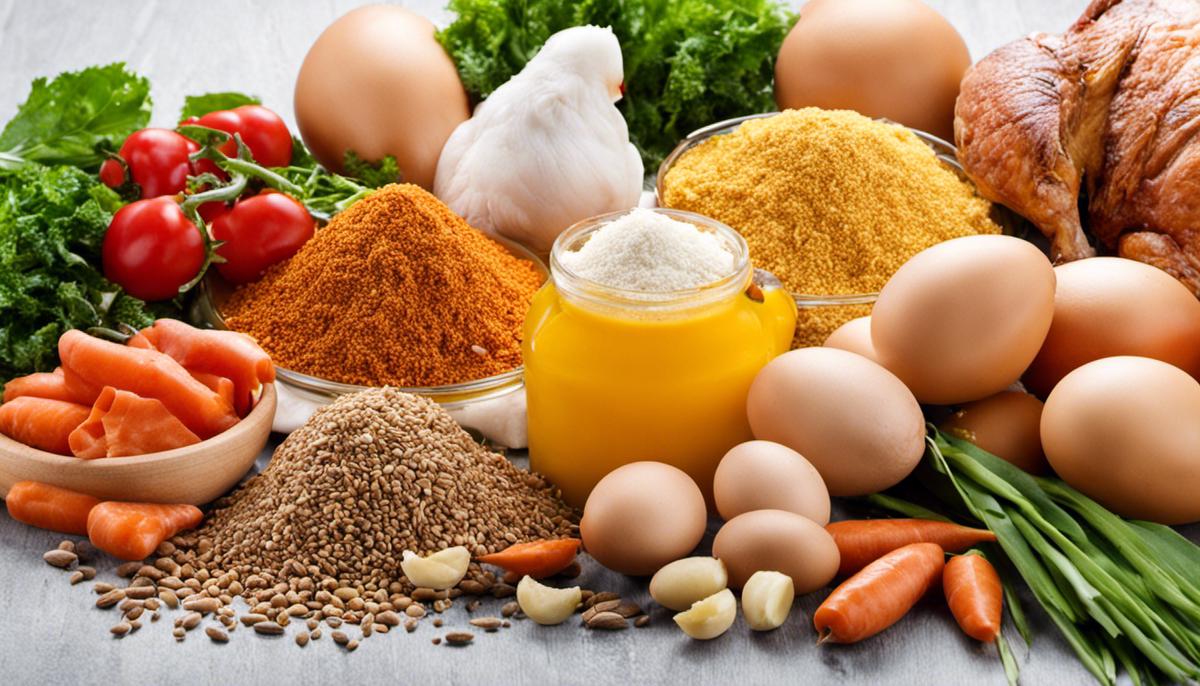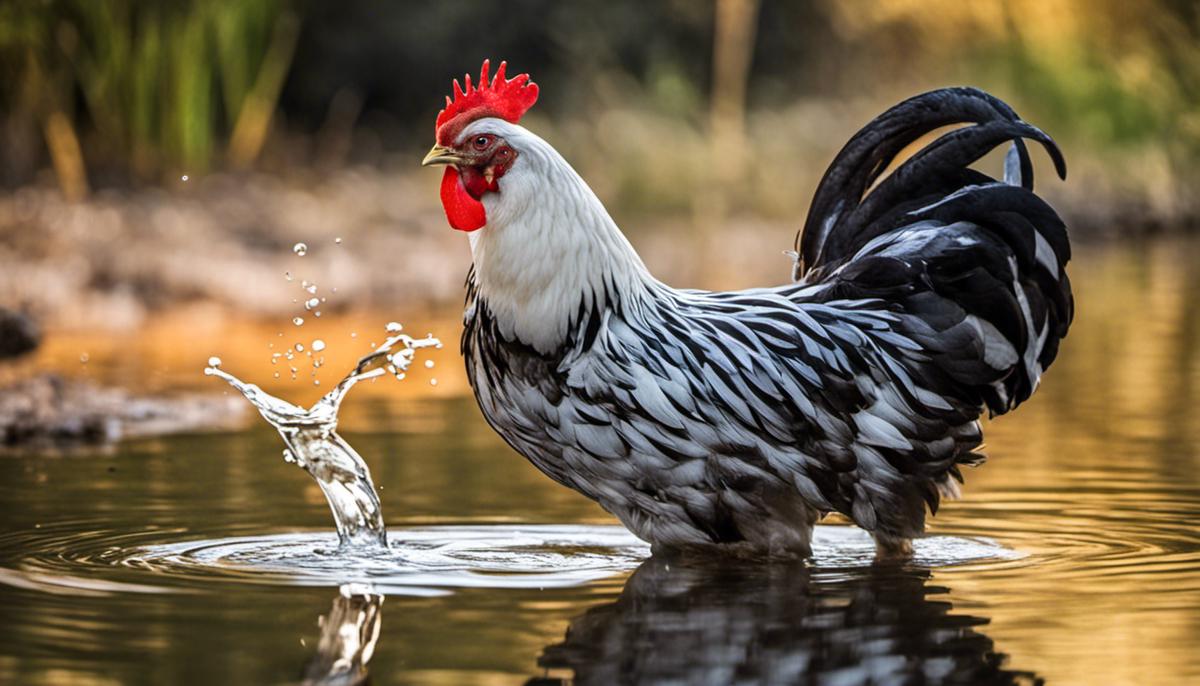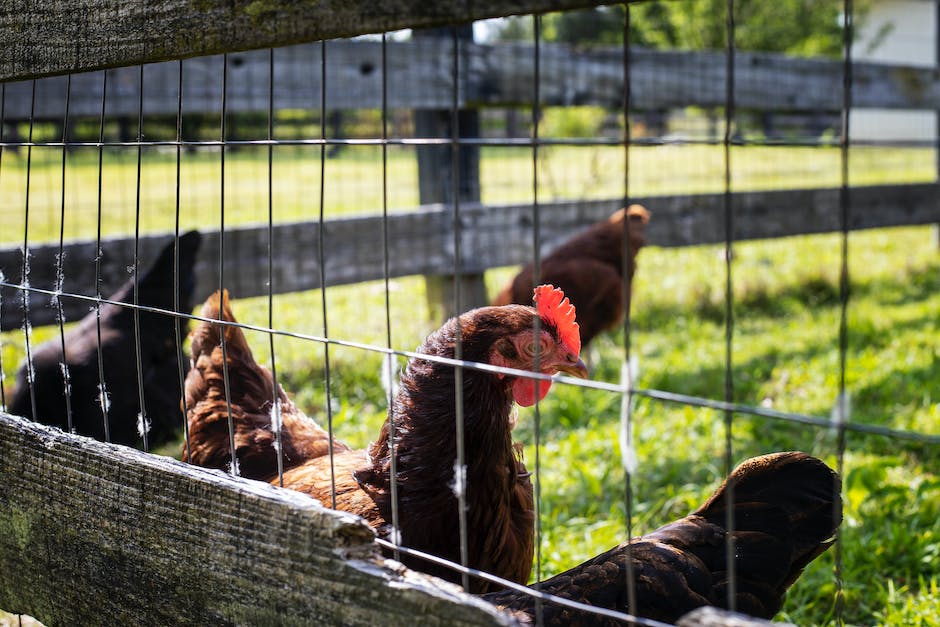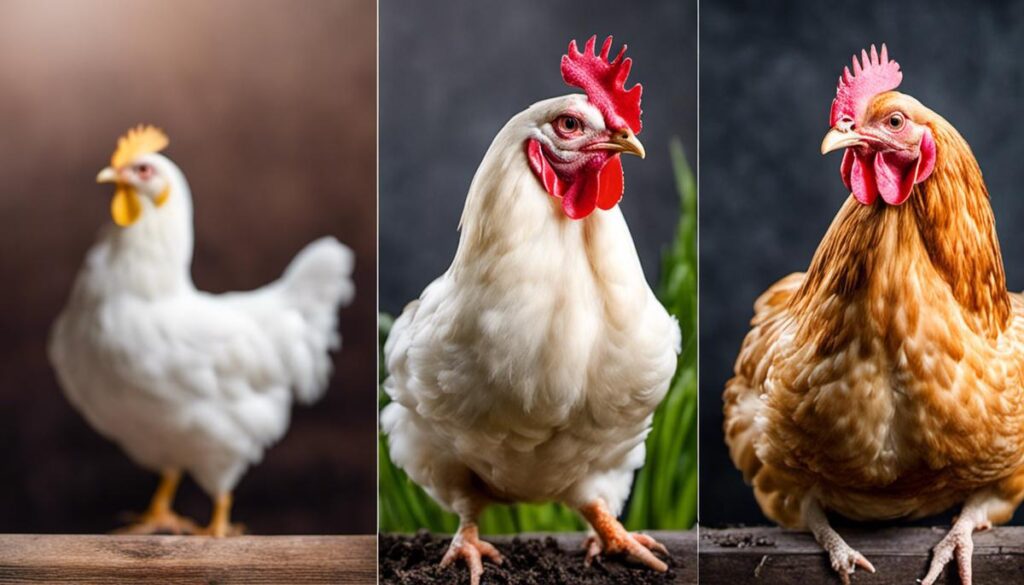Mastering poultry farming can be a fulfilling and lucrative venture when armed with adequate knowledge. One of your primary responsibilities will be to prioritize the health and overall well-being of your flock. In this checklist for keeping your flock healthy, you’ll learn the fundamental principles of poultry nutrition and the importance of hydration. It also means being proactive with healthcare, including maintaining veterinary supplies and routine check-ups. Lastly, it includes cultivating an ideal habitat for your poultry that caters to their environmental needs. Indeed, keeping your flock healthy necessitates a multifaceted approach – from the food they consume, the water they drink, to the very environment they live in, every piece of the puzzle is vital for a successful and productive flock.
We will receive a commission if you purchase through our affiliate link at no extra cost to you. Please read our disclosure policy for more information.
Understanding the Basics of Poultry Nutrition
1. Essential Nutrients For Poultry
Poultry, such as chickens, require a balanced diet of proteins, carbohydrates, fats, vitamins, and minerals for optimum health and productivity. Proteins are crucial for growth, repair, and body maintenance. Foods rich in protein include soybean meal, canola meal, and fish meal. Moreover, carbohydrates found in cereal grains are the primary source of energy for the flock.
Fats are an essential energy source and play a pivotal role in vitamin absorption. They can be found in foods like corn and other grain products. Vitamins are nutrient compounds required for several body functions. They can be obtained from natural food sources or commercial poultry feed.
Lastly, minerals like calcium and phosphorus are required for strong bones and egg shell formation. Limestone or oyster shells are excellent calcium sources. Reliable sources of phosphorus include bone meal and defluorinated phosphate.
2. Common Feed Ingredients For Poultry Health
The key to maintaining a healthy flock is to combine essential nutrients into a balanced diet plan. Thus, understanding the value of common feed ingredients is crucial.
Whole grains like corn, wheat, and oats are readily available, affordable, and packed with carbohydrates and proteins. Many poultry raisers also incorporate animal by-products like meat and bone meal, as they are high in protein and calcium.
Additionally, incorporating green and leaf vegetables into the flock’s diet is beneficial. They add variety and provide essential vitamins and minerals. Dried alfalfa and clover are excellent choices for leafy greens. For a complete guide on understanding chicken feed, check out this Comprehensive guide on understanding chicken feed.
3. Feeding Methods for a Healthy Flock
Ensuring that your birds always have access to clean water and fresh food is crucial to their health. Adopting an ad-lib feeding strategy, which permits constant availability of food, encourages natural feeding practices, promoting optimal growth and productivity in poultry.
Chickens require different nutrition at various stages of their lives. Young chicks necessitate a high-protein “starter feed” diet for the initial six to eight weeks. Thereafter, until they start laying eggs, they need “grower feed“, which is abundant in calcium. Once they commence laying, they need a “layer feed” that is higher in calcium to adequately support egg production.
The form in which the feed is provided plays an essential role as well. Compared to mash feeds, pelleted and crumbled feeds are less likely to create waste. Such feeds can be managed effectively in feeders and are easily consumed by the chickens. For a great source of Organic chicken feed Click Here.
Furthermore, cleanliness in the feeding area is essential as it mitigates the risk of disease transmission and motivates the flock to eat healthily. Good nutrition is crucial, but it also needs to be complemented with regular health check-ups, vaccinations and suitable shelter and care to maintain a healthy flock. Maintaining a clean coop is critical, learn how and when you should be cleaning your coop in this article: Maintaining poultry health: Cleaning your chicken coop regularly

The Importance of Clean Water and Proper Hydration
Water: The Essential Nutrient for Poultry
All animals, particularly poultry, can’t survive without water. It is absolutely vital for life as it serves several critical functions—from aiding in digestion to maintaining body temperature and ensuring overall flock health.
Water is instrumental in bird digestion. It helps soften food, making it simpler for the chicken’s gizzard—a part of its stomach—to break down the consumed food. Apart from enabling the transportation of nutrients within the bird’s body, water plays an important role in waste elimination through urination and defecation.
Several metabolic functions also depend on water. For example, water is essential to regulate temperature in poultry. As birds don’t sweat and pant to cool down, the evaporation of water during panting cools their bodies by dissipating heat. Without an ample supply of water, especially during warmer seasons, birds can easily overheat, negatively affecting their health and productivity.
The Right Frequency: How Often To Provide Water
While it’s been established that water is critical for chickens, understanding just how regularly birds need to drink is equally vital. Poultry should have unrestricted access to fresh, clean water at all times. Chickens drink approximately twice as much water by weight as they eat in feed, with their water intake varying with the environmental temperature, diet, and bird type and age.
Some evidence suggests that laying hens, for instance, can consume up to 500ml of water per day. Young chicks, too, require a continuous water supply, as they are particularly susceptible to dehydration.
The Perfect System: Finding The Best Watering Arrangements
Choosing the right watering system can make a significant difference in keeping a healthy flock. Their ease of use and the cleanliness of the water they provide are two key attributes to consider. A range of system options exists – ranging from bell or vacuum drinkers to nipple drinkers and automatic cup systems.
Bell or vacuum drinkers are often used for small poultry flocks or backyard chickens. This style of drinker is easy to fill, clean, and monitor for water quality. Here is a 5-gallon Plastic drinker.
Nipple and cup systems are more commonly used in commercial poultry operations due to their convenience. Nipple drinkers, in particular, restrict how much water chickens can spoil by splashing, keeping the water clean for longer.
The Purity Factor: Keeping Water Clean
Maintaining the cleanliness of the water supply is paramount. It reduces risks associated with the spread of disease and infection, which can thrive in polluted water and pose significant threats to the health of the flock.
When using open watering systems like bell or vacuum drinkers, regular cleaning and disinfection are crucial. The water should be changed daily, and the vessel scrubbed to remove any biofilm—a collection of microorganisms, such as bacteria and fungi, that could cause disease.
To help maintain water purity, some poultry keepers add a small amount of apple cider vinegar to their water supply, a natural disinfectant. Others use water sanitizers or disinfectant tablets for a similar effect.
In contrast, closed systems like nipple drinkers usually keep water cleaner for longer due to their design. However, they should still be checked and cleaned regularly to prevent clogging by debris or the buildup of harmful microorganisms.
However, if you live in an area that you have to worry about your waterer freezing, read my article all about heated waterers.
In Summary
One of the most vital aspects of maintaining a healthy poultry flock is ensuring a clean and steady water supply. Water is not only key to digestion, but also plays a role in regulating body temperature and facilitating a myriad of metabolic processes in birds. With a reliable watering system that provides uncontaminated water, poultry can have continual access to the hydration they need. More so, a clean water supply can help curtail the spread of diseases within the flock, adding to overall flock health significantly.

Healthcare Supplies and Regular Veterinary Check-Ups
Administering Essential Vaccines for Optimal Poultry Health
As someone responsible for a poultry flock, focusing on your flock’s health and wellness is of utmost importance. A crucial component of this involves ensuring your flock receives all necessary vaccinations. Common viral diseases amongst poultry, such as fowl pox, infectious bronchitis, and Marek’s disease can be managed effectively with timely vaccinations. Regular updates of these vaccines play a key role in ensuring flock health, mitigating disease outbreaks, and consequently preventing both undue animal suffering and potential economic loss.
Antibiotics: Crucial Healthcare Supplies
It’s crucial to maintain the health of poultry, just like in humans. Antibiotics combat bacterial infections, prevent the spreading of diseases, and improve overall production levels. However, responsible antibiotic use is central to preventing antibiotic resistance, a rising global issue. Using antibiotics for non-therapeutic uses such as growth promotion is highly discouraged because it can contribute to antibiotic resistance, making it hard to treat diseases later.
First-Aid Items for Immediate Care
Accidents and sudden illnesses can occur in a flock, too, so having first-aid items on hand is vital. Hemostats, wound sprays, styptic powder, bandages, antiseptic, and tweezers can help address injuries promptly. These items can help control bleeding, clean wounds, and remove foreign bodies, which can prevent infection and speed up recovery.
Regular Veterinary Visits for a Healthy Flock
Scheduling regular vet check-ups is another excellent way to ensure the health of your flock. Veterinarians possess the expertise to determine the overall health of the flock, diagnose any potential issues, and provide the right treatment options. They can also guide on the proper use of medications and assist in developing a robust flock health program.

Preventative Healthcare Measures for Poultry Health
Remember, prevention is better than cure, and preventative health measures can save you significant trouble down the line. Sanitation protocols, including regular cleaning and disinfection of the coop, are key to preventing the spread of diseases. Nutritional balance is another aspect that plays a major role in the overall flock health. Ensuring a balanced diet with the right amount of protein, vitamins, and minerals can boost the flock’s immunity, reducing the probability of disease.
Early Detection of Common Diseases
It’s vital to become aware of the symptoms of common poultry diseases as early detection can make a substantial difference in the overall health of your flock. Watch for changes in behavior, such as alterations in feeding and drinking habits, drops in egg production, and physical symptoms like swollen eyes or a nasal discharge. These could be early indications of illness. Identifying these issues promptly and implementing appropriate treatments can speed up recovery and potentially save lives.
Ideal Shelter and Environmental Conditions for Poultry
Must-Have Supplies for a Healthy Flock
To maintain a thriving poultry flock, there are several crucial supplies and conditions that can greatly enhance their wellness and productivity. A reliable shelter tops the list, offering protection against potential predators and extreme weather conditions. A well-built coop that is easy to maintain, provides ample roosting space, and includes nesting boxes for hens forms the foundation of this shelter.
To learn more about different coops check out my other articles.
Temperature and Humidity Control
The degree to which external elements can be moderated influences the health of your flock. An ideal poultry shelter should maintain temperatures that reflect the comfort zone of the birds, typically between 65-75 degrees Fahrenheit. Excessive heat or cold can lead to stress, decreased egg production, and disease susceptibility.
Humidity control is another crucial aspect of poultry flock health. While chickens can handle a wide range of humidity levels, an ideal range from a comfort and health perspective is between 40% – 70%. High humidity combined with low temperatures can lead to chilling and respiratory diseases, while low humidity can result in dry and cracked skin.
PETNF Chicken Coop Heater uses radiant heating technology, which means that heat is transferred from one object to another, with the warmth coming from very close to the heating plate. Creating the temperature while keeping your poultry and pets safe.
A crucial part of keeping the humidity and temperature within the appropriate range is ensuring good ventilation throughout the chicken coop. Fresh air should be allowed to circulate throughout the coop to inhibit the growth of pathogens. Overcrowding can lead to increased ammonia levels, causing sensory irritation to chickens and making them more susceptible to diseases.
Lighting and Space Requirements
Lighting in the coop is pivotal in simulating a natural environment for the poultry. It also stimulates egg-laying. Providing 14-16 hours of light in a day can ensure a stable egg production rate. Naturally, this will need adjustment as the season’s change and daylight hours naturally increase or decrease.
AutoCoop LayLight – Is a automatic LED daylight extender that will boosts chicken egg production.
Space requirement per bird in a poultry shelter largely depends on the type of bird, whether broilers, layers, or breeders. For example, layers should have at least 18 inches of perch space and 1-2 square feet of floor space each inside the coop. They should also have access to a safe, enclosed run area of at least 8-10 square feet each. This space is necessary for the chickens to move around freely, which in turn helps reduce stress and disease.
Water and Food Supplies
Lasty, water and food supplies are an obvious must. Fresh, clean water should be available at all times. Feeders should be designed to reduce wastage and should be kept clean to avoid contamination. A well-rounded diet is essential to meet the nutritional needs and promote the health of the flock.
Conclusion
By carefully considering these ideal living conditions, you can ensure the overall health and productivity of your poultry flock. The appropriate environment undoubtedly fosters more significant behavioral expression, enhancing the well-being and productivity of the birds.

Maintaining a healthy flock is a rewarding endeavor that requires a diverse range of measures, from a thorough understanding of nutrition and hydration, to a commitment to regular health checks and a well-equipped farmer’s kit. Also, creating a flock-friendly environment that provides the necessary protection, space, and environmental conditions is essential. Assessing the measures necessary to ensure the overall wellbeing of your poultry is not merely a daunting checklist of tasks, but a testament to the holistic approach required in poultry farming. By adopting these practices, you not only promote a thriving environment for your flock but also ensure your venture’s longevity and success.
To learn about more essential tool, check out my article: 10 essential tools every chicken owner should have.









